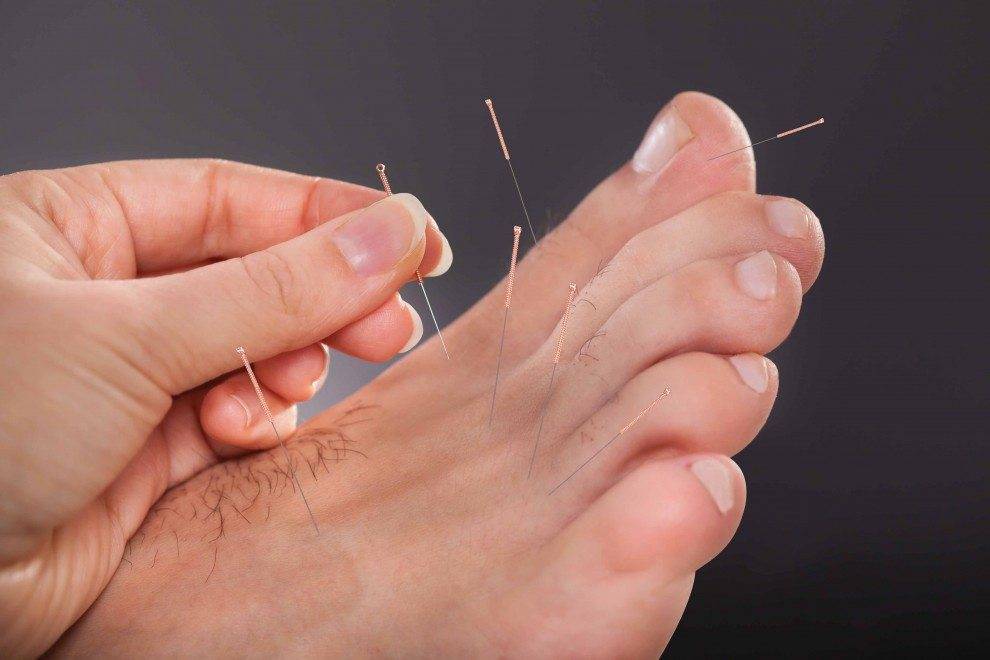How Does Dry Needling Help Plantar Fasciitis?
Dry needling is a treatment technique used to release myofascial trigger points, which are knots in muscles that may cause discomfort elsewhere. Trigger points are one of the primary causes of plantar fasciitis and other chronic heel pain conditions. A recent study demonstrated that trigger point dry needling could potentially reduce your symptoms.
Reduces Pain
Dry needling is an efficient and safe way to reduce pain in plantar fasciitis. It works by creating micro tears in your skin and muscle, which prompts your body’s natural healing processes. At your physical therapy session, they will insert the needle into an area where you experience pain or tightness. They use their finger or hand to feel the area and pinpoint a trigger point–a knotted muscle that causes discomfort–that causes this discomfort.
A needle may cause a minor sting or twitch, but this is normal and should not last long. Some patients experience mild bruising or soreness after their session; however, this usually dissipates within a few days.
When receiving dry needling, it is essential to work with a trained therapist as incorrect placement of the needle could result in punctured lung or infection. Always contact your provider if you experience any significant bleeding at the insertion site or experience shortness of breath.
Reduces Inflammation
Dry needling is used to target myofascial trigger points that cause pain, tightness and decreased range of motion in certain muscles. These areas, often referred to as knotted muscles or muscle adhesions, have been linked with plantar fasciitis, heel pain, knee pain, tennis elbow and other musculoskeletal injuries.
Trigger point dry needling involves inserting a fine needle into the center of a trigger point, causing the tissue to contract (pull tight). This provides continuous mechanical stimulation to the area and can often reduce pain within minutes.
Dry needling has proven to be highly effective in treating plantar fasciitis when combined with other physical therapy treatment methods.
Increases Range of Motion
Dry needling increases range of motion by relieving trigger points (areas of muscle tightness) in the affected area. This technique may be combined with other treatment methods like corrective exercises and physical therapy for maximum benefit.
Trigger points are areas of tissue with adhesions or knots that can cause pain and inflammation. Dry needling helps to loosen these trigger points, improving flexibility while relieving pain.
Research has demonstrated that dry needling can effectively treat plantar fasciitis, a common condition seen at orthopedic doctors. This procedure is non-invasive and cost-effective for treating your condition.
Dry needling is a safe and effective way to release trigger points in the plantar fascia and other muscles that cause foot pain. It may take several sessions before you see significant improvement, so be sure to seek professional medical guidance prior to beginning this procedure.
Increases Flexibility
Dry needling can help increase flexibility in plantar fasciitis by targeting trigger points – knotted muscle tissue that is sensitive to touch.
Your physical therapist uses thin dry needles to puncture the skin and move them through tissue, applying a steady mechanical stimulus for 15 minutes on top of that to the trigger point.
Many people experience significant relief from plantar fasciitis pain and mobility after just one session. Others may need more than one treatment to see results.
It is essential to know that this type of therapy works best when combined with other treatments like plantar fascia stretches, exercise and supportive shoes. A physical therapist can assist you in deciding the most beneficial treatments for your condition.
If you’re interested in learning more about dry needling and other treatment options for plantar fasciitis, visit Simply Physio or contact us to schedule an appointment with our team of specialists.



